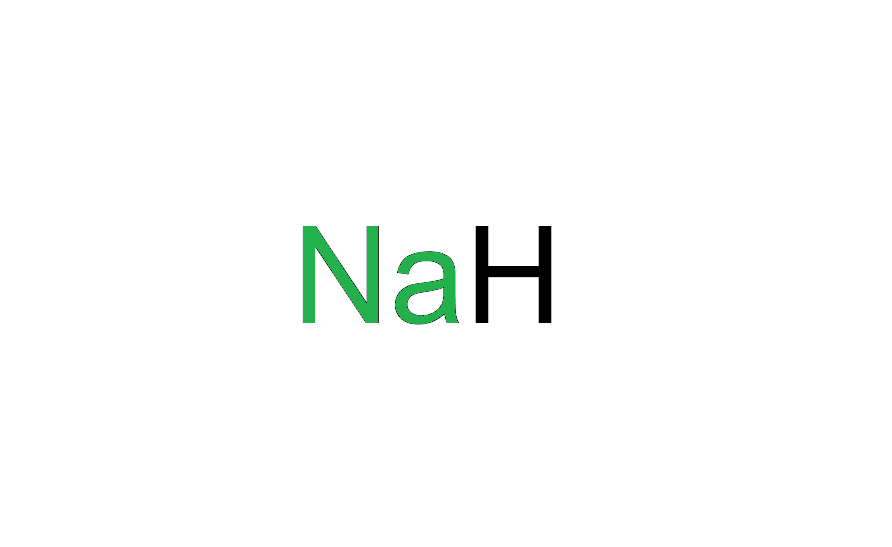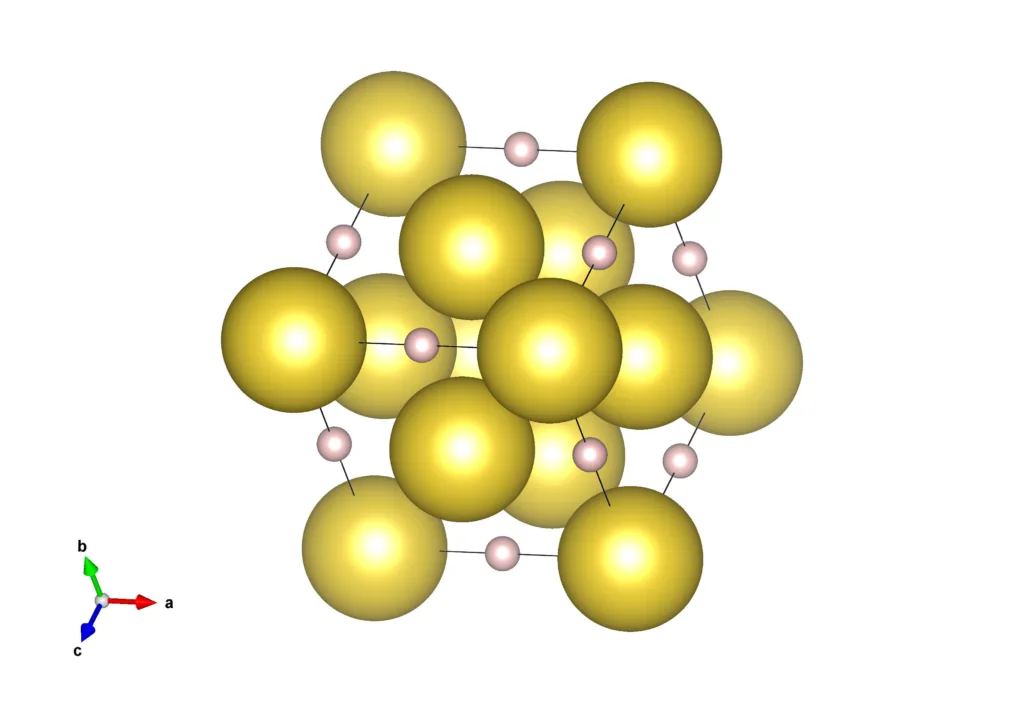Sodium hydride, commonly referred to as NaH, is a strong base that is widely used in organic chemistry. It is a white, crystalline solid that is highly reactive due to its strong reducing properties. NaH is formed by the reaction of sodium metal with hydrogen gas, resulting in the formation of NaH and releasing a large amount of heat.
NaH is a strong base because it undergoes complete dissociation in an aqueous solution, resulting in the formation of hydride ions (H-). Hydride ions are highly basic and can readily abstract a proton from any molecule that has an acidic hydrogen atom, making NaH a versatile reagent in organic synthesis.
However, despite bing a strong base, H- in NaH is not a good nucleophile in SN2 reactions. This is because the 1s orbital of the H- ion has much better overlap with acidic hydrogen atoms on the substrate, making it more likely to abstract a proton rather than attacking the electrophilic center. This makes NaH a better choice for deprotonating weak acids rather than serving as a nucleophile in SN2 reactions.
In addition to its role as a strong base, NaH is also a superbase capable of deprotonating a range of even weak Brønsted acids to give the corresponding sodium derivatives. This makes NaH a valuable tool in organic synthesis, where it is used to prepare a variety of compounds such as alkynes, alcohols, and carboxylic acids.
NaH is a strong base that is widely used in organic chemistry due to its ability to act as a versatile reagent in a variety of reactions. While H- in NaH is not a good nucleophile in SN2 reactions, it is still highly valuable as a superbase for deprotonating weak acids. Its wide scope and utility in organic chemistry make NaH an essential reagent in many synthetic applications.
Is NaH Weak Or Strong?
NaH is considered a strong base. When NaH is dissolved in water, it completely dissociates to form hydride ions (H-). The dissociation of NaH in water is highly exothermic and spontaneous, indicating that the reaction proceeds to completion. This strong dissociation of NaH in water results in a high concentration of hydroxide ions (OH-) in the solution, making it a strong base.
Some of the characteristics of a strong base are:
– It ionizes completely in water to produce hydroxide ions (OH-)
– It has a high pH value, usually aove 10
– It reacts readily with acids to form salts and water
– It has a bitter taste and a slippery feel
– It can cause severe burns and skin damage on contact
NaH is a strong base that can be used for various chemical reactions, including organic synthesis, catalysis, and reduction reactions.

Why Is NaH A Poor Nucleophile?
Sodium hydride (NaH) is a poor nucleophile in SN2 reactions due to its low nucleophilicity. NaH is a strong base, but its small size and high positive charge on the sodium ion make it a poor nucleophile. The hydride ion (H-) in NaH has a small size and a high negative charge, which makes it difficult to attack the carbon atom in the substrate.
Moreover, the H- 1s orbital has a much bettr overlap with acidic hydrogen atoms on the substrate, making it more likely to deprotonate the substrate rather than attacking it as a nucleophile. NaH is also a non-polar reagent, which makes it difficult for it to interact with the polar substrate in SN2 reactions.
The low nucleophilicity, small size, high positive charge, and non-polarity of NaH make it a poor nucleophile in SN2 reactions.
Is NaH A Strong Acid Or Base?
NaH is a strong base. It is an ionic compound composed of sodium cation (Na+) and hydride anion (H-). Due to the small size and high electronegativity of hydrogen, the hydride anion has a high affinity for protons and is thus a strong base. NaH is widely used in organic chemistry as a superbase, capable of deprotonating a wide range of even weak Brønsted acids to give the corresponding sodium derivatives. Its strong basicity can be attributed to its ability to readily donate its hydride ion, whch can react with proton donors to form hydrogen gas. NaH is a strong base with a wide scope and utility in organic chemistry.
Is NaH A Strong Acid?
NaH (sodium hydride) is not a strong acid but rather a strong base. This is because the hydrogen in NaH has a negative charge of -1, making it a hydride ion, which has a strong tendency to attract and accept protons (H+ ions). As a result, NaH can easily react with water to form hydrogen gas (H2) and sodium hydroxide (NaOH), which is a strong base. Therefore, NaH is commonly used as a strong reducing agent in organic chemistry reactions, but it is not considered an acid.

Conclusion
NaH is a strong base that is widely used in organic chemistry due to its ability to deprotonate a range of even weak Brønsted acids and give the corresponding sodium derivatives. The dissociation of NaH leads to the formation of hydride ion (H−) which is a strong nucleophile. However, in Sn2 reactions, H- in NaH is a bad nucleophile because its 1s orbital has much better overlap with acidic hydrogen atoms on the substrate. Despite this limitation, NaH remains an important reagent in organic synthesis and its versatile nature makes it a valuable tool for chemists.
